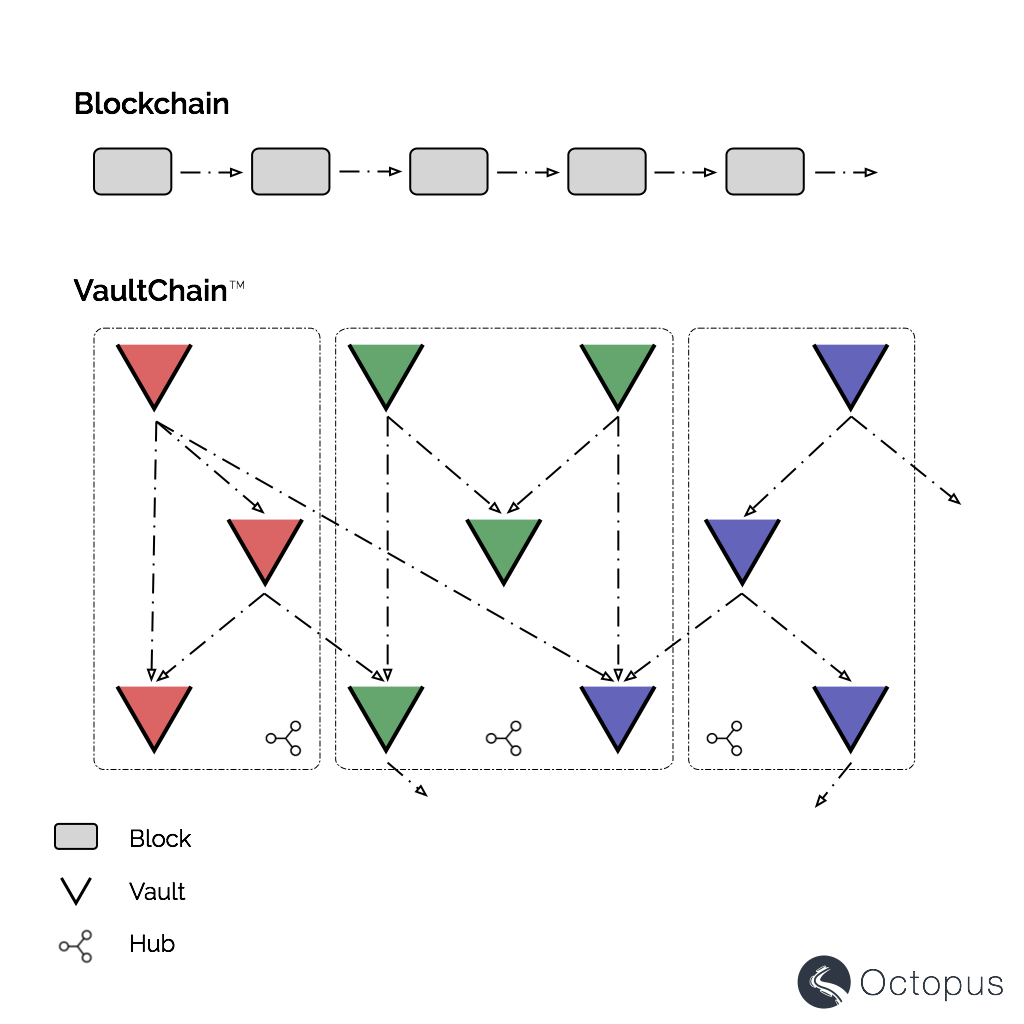 You
You
 Personas®
Personas®
 Intelligence
Intelligence
 Hubs
Hubs
 Activity
Activity
Fully Compliant Self Sovereign Identity
Our full-stack distributed graph solution reduces Enterprise cost and compliance risk whilst increasing NPV and trust with your customers - who now own their own identity
Intelligent Identity Verification - Obtain authorisation, authentication & verification of each user all in one go as user-owned Personas®, conferred trust scoring, biometrics and 3rd-party verifiable claims confirms identity.
Sovereign Identity Ownership - Every user owns a feature-rich social privacy application for identity and data management, Persona® connections and instant communication within both private and public communities.
Secure Identity Compliance - Distributed graph technology, regulatory compliance and built-in DPO roles and rights for consent management revoking personally identifiable data and exercising one’s right to be forgotten
AI Workflow - Pro-active Intelligent Agents work on behalf of users discovering & connecting layers of Personas, apps, APIs & digital services - protecting against AI threats (e.g. bots) whilst automating workflow & lifestyle decisions across private & public connections.
Read more about advanced Personas® identities in our whitepaper here.

Personas®
- Create multi-identity Personas for segmenting relationship, role and system groups
- Unlimited Personas to connect to an unlimited number of connections; any type of Persona for every type of relationship
- Persona to Persona connection between organisations and data owners digitally confirms the identity of both parties

Conferred Trust Verification
- Identity authorisation, authentication and verification of every single connection - in real time
- Securely verify, self-provision and authenticate all connections for all types of interactions
- Manage decentralised user identities, preferences, and profiles across multiple digital channels and devices

Identity Artefacts®
- Artefacts sharing and revoking, verify all identities in one place at one time with crypto-signed field-level audit trail
- Know every person who has every field of your artefacts - defining what they can do with it & for how long
- Updating Artefacts also updates all versions shared with your connections - with real-time notifications when and where it is being used

Biometrics
- Consented device biometrics and behavioural usage of Artefacts® Exchange Hub
- Finger, facial and behavioural recognition
- Secure self-provisioned access to the Octopus.sh product confirms user identity

3rd Party Identity Verification
- Persona and Artefact legal certification
- Facial recognition document IDV
- Credit Header, government and verification aggregator integration

Intelligent Agents
- Proactive, value-generating and the best line of data defence
- Identify and protect against increasingly common AI bots, hackers and other common threats to private data
- Autonomously discover apps and digital service needed to be more insightful, productive and private

Anonymous Hubs
- Build both public and private communities around your Personas making unlimited connections for sharing unlimited private data digital Artefacts
- Anonymous connectivity offers one-to-one connections without anyone else ever knowing that connection was ever made
- Complete data owner rights management to help you restrict the access your connections have to each individual field of your Artefacts

Instant Identity Exchange
- Secure, private and anonymous Persona® to Persona® communication channel
- Send/receive fully-encrypted messages in real-time
- Trusting the person/author of the shared Artefacts - not the transaction, data nor block holding it
Technology
A million Vaults for a million customers
Not 1 database for millions of users
Vaults linked together form the VaultChain®. This technology ensures only data owners can add, change, archive, revoke or delete their data - unless access is granted to another Vault in the chain.
Our technology is built on the idea that a user should trust the person authoring the personal data - not just the data itself (nor any block that holds it).
Our Vaults are distributed for security & anonymity and then federated for access, to enable complete data ownership, ensuring no company, agency or analytics organisation can ever access private data without data owner permission.
Each Vault is completely anonymous, and has no detectable relationship to any other Vault in the network. Only the owner of a Vault knows its connections & relationships to other Vaults in the network.
A Vault can store any form of data, and the owner is free to publish cryptographically signed sets of data called Artefacts® from their Vault, either to the public at large or other specific Vaults. These shared relationships between Vaults form the VaultChain
Read more about the Octopus.sh platform in our white paper here.
VaultChain®
A self-sovereign network
-
Truly self-sovereign: VaultChain has no "governing council", "stewardship" or some kind of centralised authority. In the same way anyone can run their own email servers, anyone can host a VaultChain cluster and join the network. They chose how and when they connect with the wider VaultChain network and who can use it. End users can consume any part of the network they have access to, and VaultChain then presents that as a single private contiguous network space to each consumer.
-
Storage burden: As a distributed ledger (DLT) grows in size the cost of maintaining network synchronisation rises with it. In a VaultChain only those that want to hold or verify the data store the data. This places the storage burden of long term data onto those that need the data not onto the network as a whole avoiding a tragedy of the commons.
-
Trust relationships: Hubs partition the size of the VaultChain to relevant participants, allowing owners to trust groups of network participants rather than just chains of hashed blocks. Hubs allow allow certain partitions of the VaultChain to operate with higher levels of trust than others.
-
Reputation: Because VaultChains are multi-node directed graphs, decentralised trust is built on network reputation & distance rather than proof-of-work.
-
Anonymity: Data stored in a VaultChain is built from anonymised linked data sets, the data can be retrieved and aggregated from multiple Vaults into large queryable graphs without breaking network anonymity. Sub-graphs within the dataset can be validated by different network participants.
-
Zero-knowledge: A VaultChain uses zero-knowledge proofs to reference specific datasets so preserving anonymity, whilst ensuring the graph is still navigable.
-
Audit Trails: A VaultChain allows newer data to be stored, updated & referenced as part of a single piece of auditable data.
-
Compliant: Data can be permanently deleted from a VaultChain, but only when all members of a Hub holding that data agree to its deletion.
Vision
Evolution from account to atomic to decentralised P2P trust
More and more people use atomic data management tools like messengers and encrypted storage to keep their data private. Meanwhile enterprises are spending billions creating secure encrypted systems for customer account self-management to meet compliance legislation and prevent breaches and hacks.
In the near future, Octopus Hubs will unify and redefine these detached, siloed systems as enterprise and customers build their own feature-rich hub to freely share digital Artefacts via the Personas they connect with. This will give both parties complete complaint control of their data at a field level, allowing customers to manage what and how much the enterprise can interact with them.
Enterprises can finally create a true one-to-one connection with customers - and people finally have a reason to make social relationships with all the companies and brands they value.
Read the Personas whitepaper here.

Solution Overview
Learn about our unique platform features which are helping Enterprise reduce identity management costs and build trust with every single stakeholder.
Octopus.sh - Solution WhitePaperVaultChain: A Self Sovereign Network
Learn how our VaultChain® distributed graph technology guarantees privacy, anonymity and security. Distributed "data islands" create a million vaults for a million customers – not one database holding a million customer records.
VaultChain® - A self-sovereign networkAdvanced Personas
Discover all the unique ways Personas can be leveraged to build trust - and why they're essential for true self sovereign identity.
Personas® - Managing Digital IdentitiesData Owner Perspectives
Read our new Self Sovereign Identity research that reveals compelling identity and data ownership trends as face two crises: Covid-19 and global unemployment
SSI - Data Owner Perspectives - July 2020An Investor's Story: "The Identity Crisis"
Read our illustrated investment story highlighting how Octopus.sh will lead future self-sovereign identity growth.
Octopus.sh - The Identity CrisisMedical Fraud & Patient Privacy
See how our unique technology can help Enterprise manage a medical chain of custody.
Prescriptions, Fraud & Patient Privacy


- What is Self-Sovereign Identity?
- Self Sovereign gives identity ownership back to all customers, employees and other users. Everyone owns, stores manages their digitally signed identity and attestation claims in their own Exchange Hub - and only they can control how their data is shared. SSID allows Enterprise to (consensually) manage decentralised user identities, preferences, and profiles across multiple digital channels devices
- What are the benefits to Enterprise using Decentralised Identity like Octopus.sh?
-
Benefits to Enterprise include:
- Reducing on-boarding, management, admin and other identity-related costs
- Providing optimal data security and compliance reducing risk of breaches and regulatory fines
- Increasing customer NPV using consensual data insights for relevant targeted offers
- Building trust giving customers and employees ownership of their identifiable data
- What are the benefits to data owners using Decentralised Identity like Octopus.sh?
-
Benefits to data owners include:
- Security and private ownership of all personally identifiable data
- Ease of identity management revoking individual field on your terms
- Real-time visibility knowing everyone who has every field of your identifiable data
- Reuse verified identity and attestations for multiple connections - offering access to more private and public services
- What is an Octopus Hub?
- A Hub is your personal data ecosystem letting you build social communities whilst retaining your privacy. It contains your Vaults, each of your unique Personas, digital Artefacts, Connections, Activity streams (messages, chats) and Archive.
- Why do I need an Octopus Hub?
- Your Hubs are for sharing your private data securely - so you'll use them in all aspects of your life. Chat with your friends in real time, share private photos, store your ID, manage your passwords, secure your cryptocurrency, make a conference call with work colleagues, send bank details to your spouse, archive important home ownership files, update gym membership details, grow your Connections and store then share your medical details with your doctor - right in their office. As your communities grows, the reasons to use your Hubs grows too.
- What is a Persona®?
- A Persona is a unique identity you use to connect with specific types of relationship you have online. They allow you to securely segment your social groups. A family Persona® for close ones, a career Persona for work, a social Persona for friends. Any type of Persona for every type of relationship. You can read more about Personas in the whitepaper here.
- Why would I need a Persona?
-
Currently people use multiple messengers, photo-sharing apps, password managers and social media sites to interact with friends, family and work colleagues.
The experience is fragmented, your data isn't managed properly and many of these companies access, harvest and sell on your data from the account you have with them.
Most are very are poor at keeping your private data segmented away from certain relationships. We don't want our private family photos shared with work colleagues nor workmate Connections pooled in with our close friends. Octopus Personas ensure only the right people get to see the right private data - down to a field level. - Do I need to build a big social network to use Octopus?
- No. Although we offer social features to enhance your social community experience, you can just use Octopus to easily store and manage your private data. We focus on the data you want to keep - not the throw away stuff. Bank details, photos, passwords, personal files and all other important documents are converted into legal digital Artefacts for you to keep & reuse when needed. And it's much more convenient and secure than a dusty cabinet or spreadsheet tucked away in an email folder.
- What are digital Artefacts®?
- An "Artefact" is a cryptographically signed and/or digitally encrypted set of data that represents some aspect of you or your life. Artefacts are automatically created from Octopus users private data. This includes personal docs, ID, deeds, medical, banking details, contracts, certifications, media, photos, legal docs. Users can also consolidate multiple sources of private data into a single Artefact (e.g deed, mortgage, survey = Home). Your artefacts and the data they describe can be shared via your connected Personas.
- Why don't you use Blockchain?
- For a number of reasons (see the Technology section), but three major ones. Firstly Blockchain is designed as a public transaction ledger, we don't want our customers private data held in public – and we're guessing you don't either. Secondly, once an entry is created inside a Block, it can't ever be deleted, removing any possibility of data being revoked or forgotten. Thirdly, Blockchain transactions have potential privacy & anonymity issues that were unacceptable to us. This is why we invented the 'VaultChain'.
- How secure and anonymous are you really?
-
It is mathematically impossible for us to know who owns which Vault, where that Vault is in the system, or what data a Vault might or might not contain.
Information about the Hubs that any Vault is a member of are only stored inside the encrypted Vault itself.
Every field of data in your Vault is randomly padded and then encrypted with unique cryptographic keys eg. Your First Name is encrypted with different keys to your Last Name. We never have access to any private keys or unencrypted data – ever.
In short, we don't know who you are, what you store, or what you share, and it is impossible for us intentionally or unintentionally to discover that information. - What session related data do you store about me, my Vaults or my Hubs?
- None - ever. We do not track you, your access to, or your requests in anyway (nor can we). We set no HTTP cookies or 'SuperCookies', ever, for any reason. We track IP addresses only for the purpose of mitigating DDoS attacks, and an IP address can never tracked back to any specific Vault or Hub. The only access related data stored by the servers are the 'last-modified' timestamp of the encrypted 'Storage Objects' in each Vault.
- What 3rd parties do you use, or share data with?
- No-one. We implement no advertising, ad-tracking or analytics, we use no UUID query strings in requests, we use no 3rd party JavaScript frameworks, and all the cryptography is handled in-browser by native W3C Web Crypto APIs.
- Can I use Octopus across multiple devices?
- Yes. Octopus can be used on all your devices at the same time. All updates to your Personas, Artefacts, Connections and other private data including chats, messages and photos are accessible on your phone, laptop, tablet and desktop in real time. There's no need to sync any apps, devices or vaults.

Truly decentralised identity
Octopus.sh is an innovative technology company offering market-leading self sovereign identity.
We're working with The University of Cambridge and East Anglia CyberLabs and are contributing members of
the Open Identity Exchange and Decentralized Identity Foundation
- Real time identity authorisation, authentication and verification at once
- Distributed graph solution eliminates Blockchain cost, compliance and scalability issues
- First to market with private & public conferred trust network scoring and Intelligent Agents
- Multi-identity Personas for people, roles, service connections
- Identity and other Artefacts sharing on individual field level
- Feature-rich social privacy app for viral ecosystem growth
- 100% regulatory and data compliance
Contact us: info@octopus.sh

Open
Open an Artefacts® Exchange Hub to store and protect all personally identifiable information

Create
Build unique Personas®, identities that lets everyone be who they want to be

Connect
Connect a Persona with customers, friends and organisation in both private and public networks

Share
Securely share verified identity, attestations and all other private information Artefacts®










